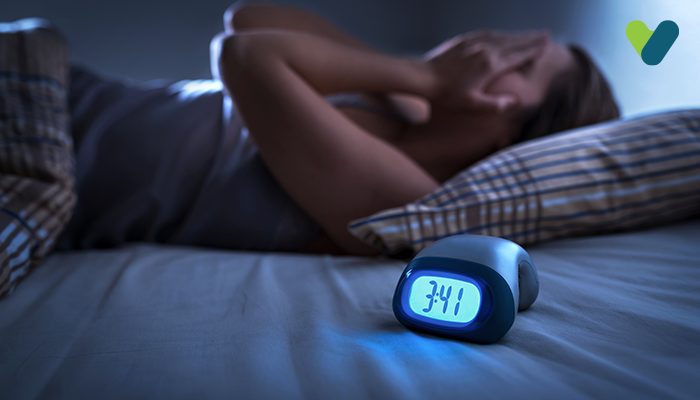Rahul is a hardworking person and he always wants to keep his health in a perfect state. He went to Delhi on an official trip to complete some tasks. However, he is not able to focus on his work due to some physical changes in his body. So, he visited a nearby hospital for a medical check-up to know the reasons. A doctor who diagnosed him told him that he is suffering from a sleep disorder and recommended some remedies. Although Rahul maintains his health, he couldn’t get adequate sleep which resulted in various problems. Therefore, one should focus on improving his/her sleep to live a healthy life.
Sleep is necessary for everyone to lead an active lifestyle. One should sleep at least 6 hours a day to overcome health complications and other problems. Moreover, it allows a person to stay away from stress which causes tension and depression. Having poor sleep will result in various problems that can affect the lives of a person. Hence, it is wise to enhance the quality of sleep for living a better life.
Knowing the Types of Sleep Disorders
Sleep disorders involve different types and one should know more about them in detail. This will help a lot to reduce them effectively.- Sleepwalking
Many factors influence the disorder and one should evaluate them properly. Some of them include sleep deprivation, stress, fever, and sleep disturbances. Injuries, excess intake of alcohol, medications, and GERD are some other things that can cause this problem. The symptoms include difficulties in waking up, awkward behaviour, glassy-eyed expression, problems functioning during the day, etc.
The treatment for the disorder depends on the age, condition, and symptoms. In many cases, a doctor will recommend treatment after evaluating a patient. Medications and cognitive therapy are some techniques used for the treatment process that will help achieve the best results.
- Insomnia
Acute insomnia is mainly caused by life stresses due to job loss, emotional issues, illness, or environmental factors. Depression, chronic stress, and pains are some factors that cause chronic insomnia. Common insomnia can occur due to medications, GERD, unhealthy habits, smoking, and alcohol consumption.
One should know the cause of insomnia properly which will help reduce the condition to a large extent. Not getting an Insomnia treatment on time may lead to obesity, diabetes, high blood pressure, mood disorder, etc. Moreover, a person can follow the preventive measures that give ways to control insomnia with ease.
The insomnia treatment may vary from one person to another person that contributes more to restore the conditions. There is no treatment required for short-term insomnia because it gets better on its own. However, chronic insomnia needs treatment to reduce the problem. A physician will recommend Cognitive Behavioral Therapy (CBT) or medications for the same problem to gain more advantages.
Those who want to avoid insomnia should avoid large meals, caffeine products, smoking, alcohol consumption, and chocolate items. Moreover, they should figure out for themselves the exact cause of insomnia by checking their lifestyle patterns. It is wise to follow a healthy diet plan to lower insomnia problems. Doing exercises allow a person to stay fit throughout the day.
- Sleep Apnea
The primary cause of sleep apnea is mainly caused by the blockage of the airways which causes some symptoms. They include snoring, daytime sleeping, night sweats, frequent urination, dry mouth, mood disturbance, etc.
People who suffer from sleep apnea should undergo a polysomnogram (PSG) test to detect the symptoms. It involves recording the movements of a variety of body functions during sleep that will help know the problems. Different types of treatments are available for sleep apnea problems enabling a person to recover from the problems efficiently.
- Narcolepsy
The treatments for narcolepsy include medications, wake-promoting medications, sodium oxybate, stimulants, and antidepressants. A person should follow a healthy lifestyle to get rid of the disorder with high success rates. He/she should avoid smoking, alcohol, heavy meals, and caffeine items before going to bed. This, in turn, will lead to a healthy lifestyle.


